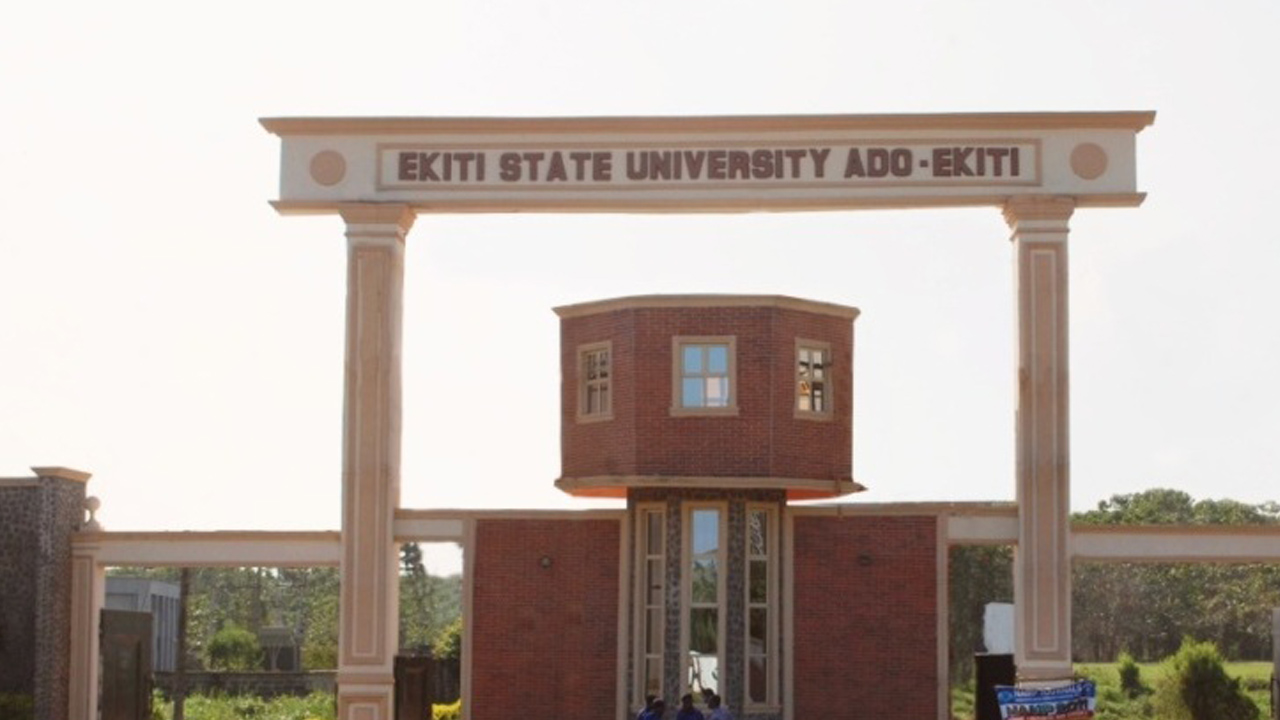For decades, the Nigerian University System (NUS) has unsuccessfully battled with fundamental challenges that inhibit its potential, ranging from a shortage of academic staff and dire funding gaps to navigating political pressures. With all these situations yet unresolved, inadequate or decrepit hostel accommodation and erratic power supply are jointly turning what should be a transformative academic journey for students into a fight for survival. IYABO LAWAL, LAWRENCE NJOKU, MURITALA ADEWALE, TINA TODO, OBINA NWAOKU, and ROTIMI AGBOLUAJE zero in on some campuses and paint a stark picture of what students endure across the country in their search for the Golden Fleece.
Desire Ambali completed her secondary school education 15 years after her immediate older sibling graduated from one of Nigeria’s most prestigious public universities.
With all her older brothers having their higher education in Nigeria, the glorious, thrilling tales of campus life and hostel living that she heard from them were compelling. Hence, she was determined to have her share of that adventure.
“When I told my parents that I preferred to reside on campus,” Ambali said, “I must have missed the shock on their faces. But within two weeks of enduring Salmonella-infested water, dungeon-like hostels, I convulsed and spent my first month in school in the hospital,” she said. Ambali neither returned to the hostel nor the school. She was spirited away afterwards.
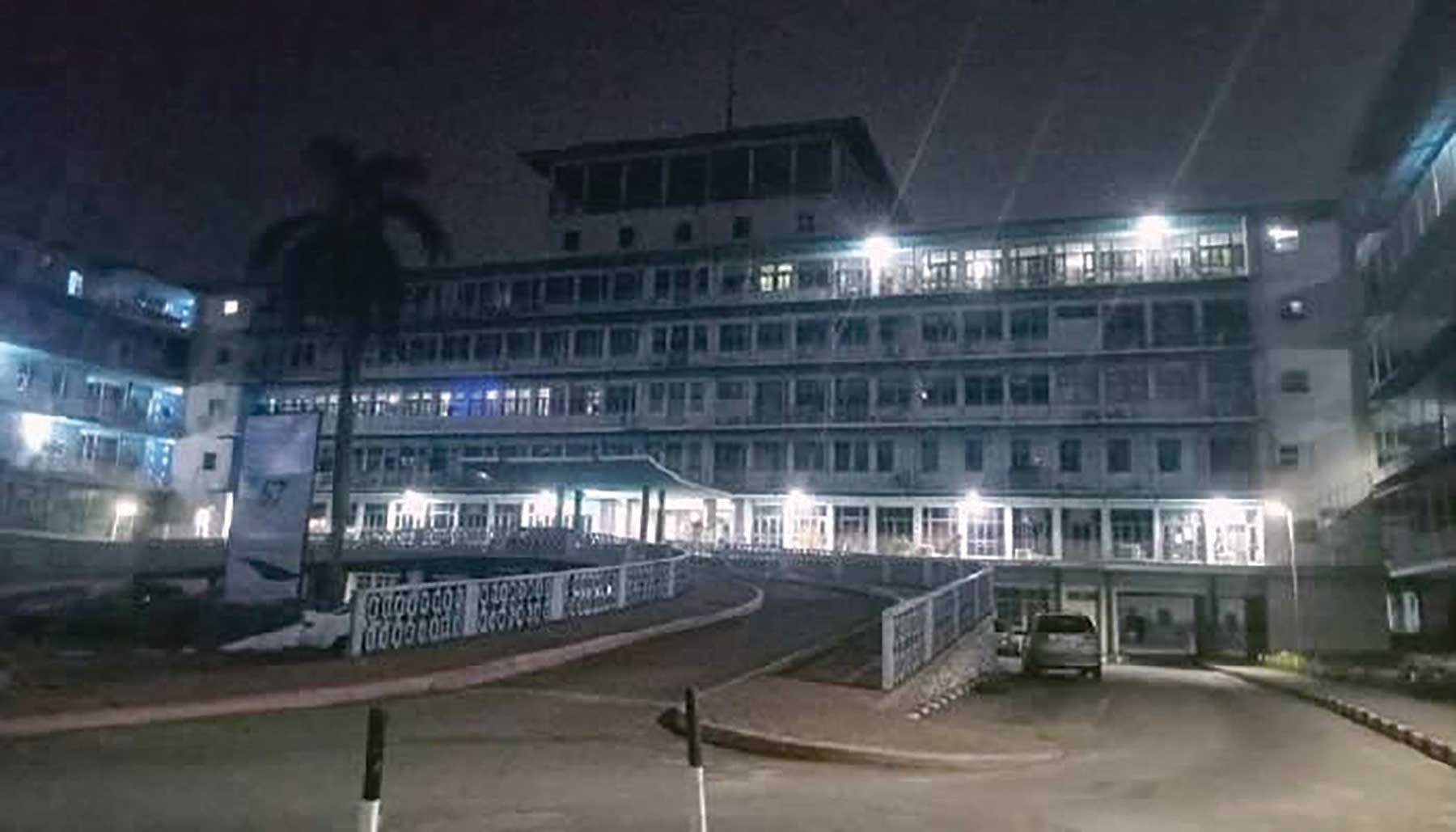
“What happened to me was so disheartening that I had to leave. I didn’t know how rotten things had become, really … It still hurt to leave the way I did, that is, not being able to experience the thrills that my older siblings experienced. It’s incredible to imagine what thousands who couldn’t afford to attend great schools go through daily.”
Chisom Nnanna is one of those who could not afford the “luxury” of attending a great school after growing up in a part of Lagos that is heavily challenged as far as basic amenities are concerned. Sadly, what he saw following his university admission was worse.
“I was sent to a school in the South-East. Even though I didn’t expect much, what I saw was worse than I expected,” Nnanna said, adding: “I didn’t have a choice because back home, we struggled to have water, electricity, and every other thing. But here, these shortages and outages stare you in the face. It feels like the world is going to collapse on you.”
Nnanna’s tales of campus life and living in the hostel of the University of Nigeria, Nsukka (UNN), are simply gut-wrenching. For instance, the bulging sewers that litter the university’s hostels constantly reek of a pungent smell as their contents seep out in trickles. The flaky and caking walls of the hostel buildings are also a grave source of concern to the students, just the same way that the underbellies of the deck reveal their iron spines.
Apart from the last coat of paint on the wall becoming whitewashed by the tropical sun over time, the hostel buildings look like long-abandoned structures when they are not; they are where thousands of Nigerian students read, eat, sleep, wake, and stay for years to acquire higher education.
In most cases, bathrooms and toilets in these hostels are unfit to rear animals, but students queue to bathe with polluted water, which they sometimes fetch from wells and streams.
Without a kitchen, students line up their stoves (gas and electric) along filthy passages and corridors to prepare meals. The school facilities seem to be on the verge of extinction, but this is not a school in war-torn Sudan or Somalia.
Without mincing words, this school is symptomatic of several sprawling universities with decrepit facilities across Nigeria.
Epileptic electricity supply on campuses is now adding to the woes that university students must endure. Several checks by The Guardian across the country exposed the glaring infrastructure deficit that public universities are enduring, as well as the sparse efforts being made by the government to make things work.
In the last couple of decades, students’ welfare, conducive accommodation, and other amenities have constituted major challenges that are rocking the Nigerian University System (NUS) even as the population on campuses continually burgeons.
This was confirmed by a 2013 survey on “Hostel Accommodation Needs in Federal Universities,” which was carried out by the National Universities Commission (NUC).
The research showed that only one of the 25 universities surveyed could provide hostel accommodation for 70 per cent of its students, while the remaining 24 could provide only between two and 43 per cent of housing.
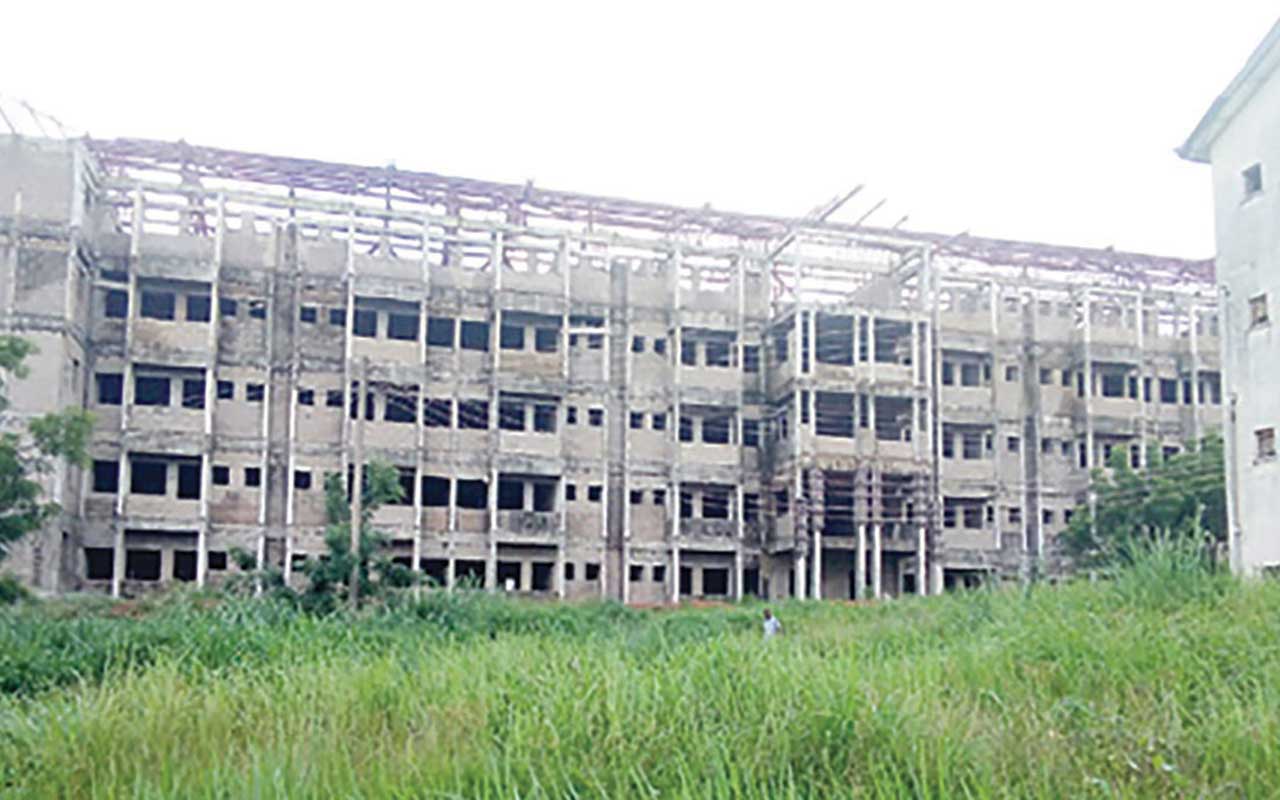
In 2019, Dr Maryam Sali, then-NUC Director of Accreditation, said the commission’s inspection of select universities showed that accommodation in public institutions and facilities was either insufficient or non-existent, while most needed upgrading.
Time was when university hostels were considered a haven for students – a place where electricity, water, and other amenities were readily available, often surpassing what many students experienced at home.
But the situation today on these campuses is much more graphic, and the story is completely different, as the rising cost of electricity, coupled with inadequate infrastructure, has turned these once-comfortable spaces into a battleground where only the brave survives.
Catalogue of misery, hopelessness on campuses
A typical example of the rot that has taken root on campuses is exemplified in the UNN, where hostel accommodation is in shambles, and the power supply crisis is a significant challenge. Before the recent hike in electricity tariffs, UNN spent an average of N80 million monthly to sustain power across its two campuses in Enugu and Nsukka.
A former Vice-Chancellor, Prof Charles Igwe, lamented that this staggering sum and rising gas and petrol costs were draining the university’s resources. Hence, the school subsequently embarked on a 500kva gasification project to address the energy crisis.
However, the situation worsened when the institution was migrated to Band A, a higher electricity tariff category. This significantly increased the school’s electricity bills.
Igwe had called for the Federal Government’s intervention, warning that the university could not function effectively under such financial strain.
For much of last year, electricity rationing became the norm in UNN as offices received power during work hours, while hostels were supplied only at night. This situation left students frustrated and struggling to cope with academic work. John Ndudim, a third-year Faculty of Health Sciences student, described the situation as dire.
“Until we left school for Christmas break, electricity was rationed. We only had power from around 9:00 p.m. to 5:00 a.m. in the hostels. If you needed to study or charge your devices, including laptop computers, you had to wait until night,” Ndudim explained.
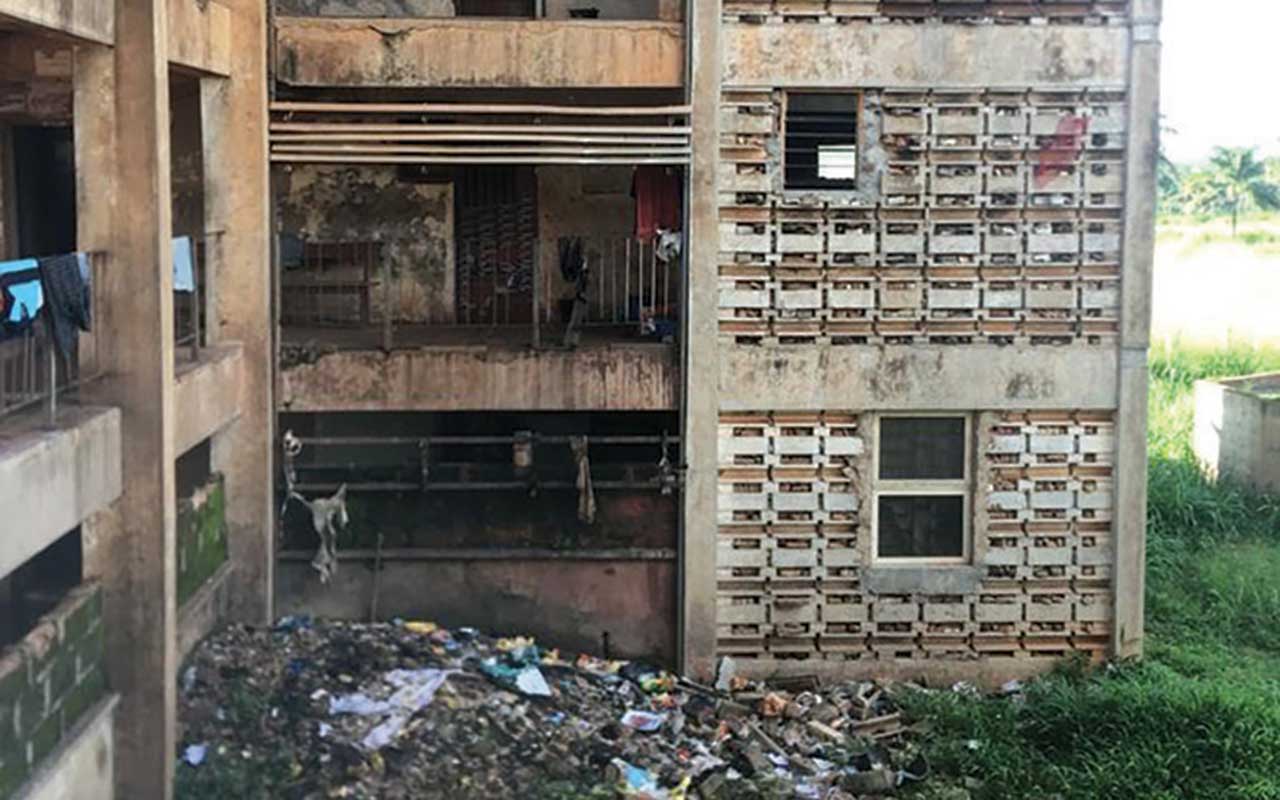
When asked if the situation had improved this year, Ndudim expressed scepticism. “The hostel portals haven’t opened yet, so we don’t know. But if things remain the same, it will be terrible. Imagine four students in a hot room with no electricity. They’ve promised solar power, but we only see it on campus and in faculty offices, not in the hostels.”
A 400-level medical student, who preferred anonymity, echoed similar concerns, stating: “The irregular power supply is frustrating. The hostels are in poor condition, and the lack of water makes it worse. It feels like the school doesn’t care about our welfare.”
A public relations official of the school, who spoke to The Guardian on grounds of anonymity, lamented that the cost of electricity had tripled since the migration to Band A.
“We’ve had to ration electricity to manage other expenses. Irresponsible usage has also been curtailed. Much of this is funded through internally generated revenue, which isn’t easy for the school,” the official said.
Earlier on, the immediate past acting Vice Chancellor of UNN, Prof Polycarp Chigbu, stated that the university was exploring sustainable energy solutions. According to him, some departments adopted solar power, while a 100 KVA refuse-derived fuel gasification plant was also commissioned, with plans to expand it to 500 KVA.
All these notwithstanding, students lamented that the authorities’ efforts were yet to translate into tangible improvement.
At the Lagos State University (LASU), Ojo, students are growing increasingly frustrated over the persistent power outages that have plagued the institution of late. The unreliable electricity supply has made studying and living conditions unbearable, prompting students to call for immediate action from the school’s management.
Power outages have forced students to rely on rechargeable lamps and candles, which pose safety hazards.
A 400-level medical student, who chose to remain anonymous, expressed his frustration thus: “I need to study for long hours, but the electricity supply is more often off than on. I can’t afford rechargeable lamps, so I use candles, which is risky. During examinations, it’s even worse because we can’t study properly without light,” the student lamented.
Emmanuel Oriyomi, a Mass Communication student, echoed similar sentiments. “We’re not asking for too much, just give us constant electricity so that we can study and live comfortably,” Oriyomi pleaded.
Water scarcity has compounded the problem of students who are living on campus. Oriyomi explained that students often resort to buying water sachets, which they use for cooking, bathing, and laundry.
Olakunle Akinmade, another student, revealed that the university occasionally uses electricity-generating plants to supply electricity and pump water to some hostels, but only for two hours a day. “This is not enough to meet the needs of everyone living in these buildings,” he said.
“We are appealing to the school authorities to fix our hostels. There’s no water, no light, and the bathrooms are in terrible condition. We don’t feel comfortable living here,” some students stated, adding, “The power supply in students’ hostels is a pressing concern that requires urgent attention. Universities must prioritise energy conservation and optimisation to ensure a stable and reliable power supply.”
Students of Ignatius Ajuru University of Education (IAUE) in Rivers State have continued to grapple with inconsistent power supply in their institution.
One of them, Peculiar Igwe, lamented that the government’s solar power initiative has little impact on hostel residents, as it only powers “lighting units outside, and not inside the hostels.”
Beyond electricity challenges, hostel fees have also risen significantly.
Igwe deplored a situation where accommodation costs at the institution have increased from N50,000 to N60,000, with total expenses reaching nearly N80,000 after additional fees in the midst of the poor power situation.
A few months ago, the University College Hospital (UCH) was in the news for the wrong reasons. While power has since been restored to the hostels, students at the University of Ibadan (UI) have expressed dissatisfaction with the irregular electricity supply on campus. Many of them lament that the daily power supply falls short of their expectations and negatively impacts their academic and daily lives.
However, there were discordant tunes regarding the number of hours that students enjoy electricity. While some of them said that they enjoy between seven to 10 hours of electricity, the Student Union President, Bolaji Aweda, claimed that the power supply on campus is up to 15 hours daily.
The Deputy Vice-Chancellor (Administration), Prof. Peter Olapegba, said the university’s electricity bill before tariffs were increased was between N60 and N100 million monthly, but has presently gone up to N200 million.
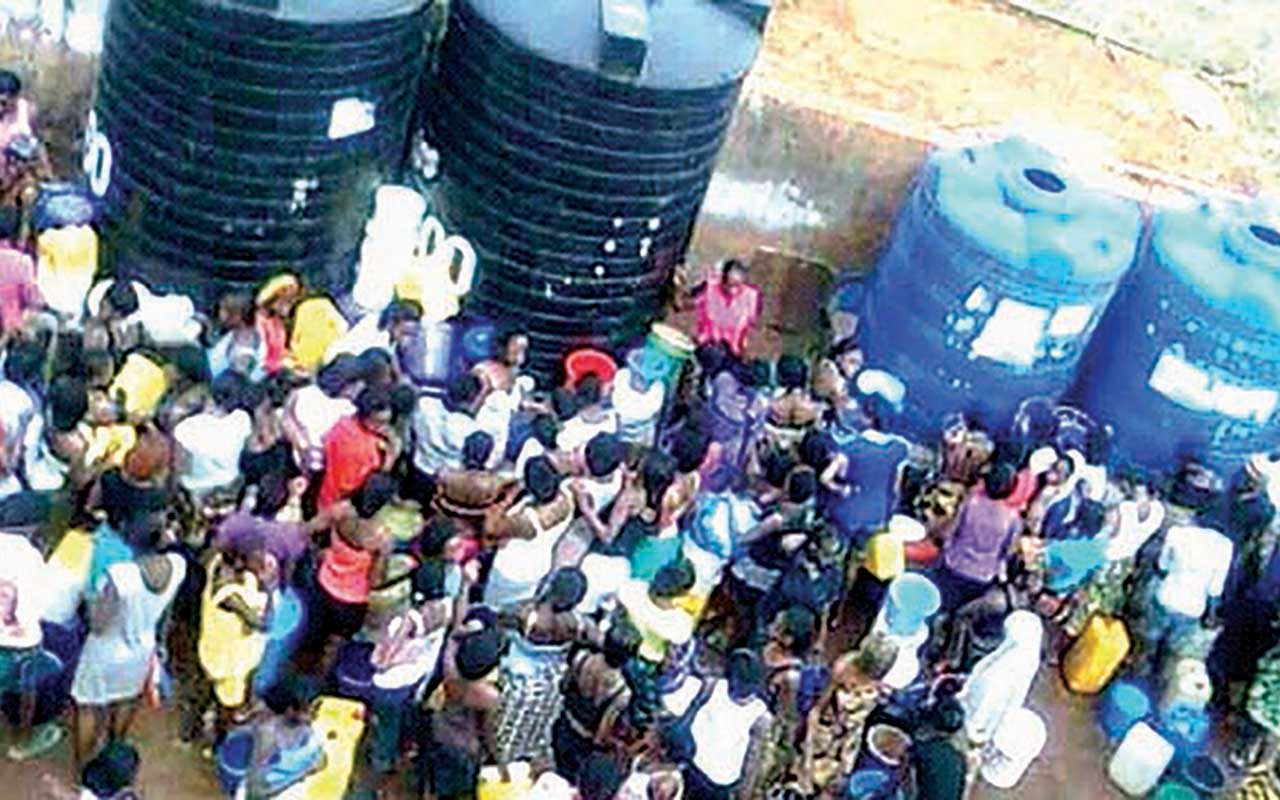
Providing an update on the federal government’s solar power project, the DVC said that the project is yet to take off at the institution.
Like their counterparts across major higher institutions in the country, students of Bayero University (BUK), Kano, are equally bearing the pain of epileptic electricity supply on campus, and the ugly trend is impacting largely on the availability of water supply on campus, such that students are forced to struggle to fetch water daily.
The Guardian findings revealed that students enjoy only four hours of electricity daily in their hostels between 7:00 p.m. and 11:00 p.m., after which the power-generating set is shut down till daybreak. Some of the students told The Guardian that the electricity supply is rationed between the academic areas and hostels at the university’s new site.
The situation is not different at the Aminu Kano Teaching Hospital (AKTH), where the power supply lasts for five hours. Unlike the students at the old and new campuses, medical students at AKTH enjoy an additional hour from 7:00 a.m. to 8:00 a.m. daily.
Incidentally, the rationing became more persistent after the school’s management increased accommodation fees.
BUK’s Head of Public Affairs, Lamara Azare, confirmed the development, saying that supply is rationed due to the increase in electricity tariffs.
Azare said that the school pays an average of N100 million monthly for electricity amid scarce resources generated from registration fees and limited federal government subvention.
On alternative power sources, Azare said that the federal government’s solar system is currently not in use, adding that efforts were being made to fix the facility.
Conversely, after enduring frequent power outages that disrupted their studies, caused water shortages on campus, and made charging electronic devices a daily struggle, students of the University of Calabar (UNICAL) are now experiencing a transformative change due to a new solar power project at the behest of the federal government.
A couple of years back, protests were common, especially during examination periods when the lack of electricity made academic work even more challenging. However, the recent introduction of solar power has brought significant improvements to the personal and academic lives of hostel residents, who now enjoy near-constant electricity—a change many describe as “magical.”
Andiyong Agi, a second-year resident of Malabo Republic (as UNICAL hostels are referred to), expressed his excitement about the transformation this way. “The university hostels now have several hours of electricity. Last year was a different story, but this solar project has changed everything,” he said.
Beatrice, a 300-level engineering student, also acknowledged the positive shift, noting that even some students living off-campus now come to the hostels to study at night.
According to UNICAL authorities, the solar system was designed to power hostels and key university facilities. While it does not yet provide 24-hour electricity, students now experience far better conditions than before.
The school’s spokesperson, Effiong Eyo, confirmed that the solar project has significantly reduced electricity costs, even though the institution still relies on traditional power sources in some areas.
The exact amount saved from the solar project remains unclear, but the university hopes that solar energy will reduce overall expenses in the long run.
Time to end decades-old power, hostel crises
OVER the years, students have protested severally times against poor hostel facilities and demanded better living conditions from school authorities.
For instance, in January 2022, protesting students at the University of Uyo, Akwa Ibom State, shut down the campus after the management failed to meet their demands for the renovation and fumigation of the hostels and provision of mosquito nets.
Medical students at the University of Lagos (UNILAG) also rejected the school’s decision to limit power supply to their hostels to four hours daily, describing the move as inhuman and detrimental to a conducive learning environment.
The power rationing followed the students’ rejection of a hike in the monthly electricity bill that they were asked to pay. They also decried the decrepit state of the toilet and bathroom facilities in their hostels.
Using the Federal University of Technology, Akure (FUTA), as a case study, research done in 2022, titled “Quality of students’ accommodation in Nigeria’s Tertiary Institutions,” compared students’ housing on and off campus, adopting variables such as water quality, condition of hostel building and rent.
The study showed that 24 per cent of students residing on campus had access to drinkable water, 58.3 per cent to non-drinkable water, and 17.7 per cent had access to water used for cooking and laundry.
However, 60 per cent of students living off-campus had access to drinkable water, 20 per cent to non-drinkable water, and 20 per cent to water used for cooking and laundry only.
At on-campus hostels, the study revealed that 34.4 per cent of students lived in a room with no cracks, while 65.6 per cent resided in rooms with minor or major cracks, while at off-campus, only five per cent of students lived in rooms with minor cracks, while 95 per cent resided in apartments without cracks.
Speaking on the issue of the crisis besetting tertiary institutions, an energy economist, Prof Adeola Adenikinju, reiterated the need for universities to make bold decisions, optimise their energy consumption, be creative in generating power internally, and reduce energy waste.
Adenikinju said: “You need to create an incentive for efficient energy management,” just as he urged universities to be creative in energy generation and utilisation…”
Solar power to the rescue?
AS Ndudim and his peers continue to hope for a brighter future, where lights stay on long enough for them to study, recharge their devices, and thrive, the power struggle, both literally and metaphorically, remains a daily reality in Nigeria’s universities. However, the change of fortunes at UNICAL offers hope that similar projects can be implemented across other institutions, ensuring that no student has to struggle in the dark to acquire knowledge.
To address persistent power outages in tertiary institutions, the President Bola Tinubu-led government has also announced plans to energise campuses to enable them to function maximally. One of the initiatives is the plan to provide a sustainable and clean power supply to 37 universities and seven university teaching hospitals through the Energising Education Programme (EEP).
The EEP initiative includes the provision of an independent power plant, upgrading existing distribution infrastructure, street lighting to improve security within affected universities’ campuses, as well as the development of a world-class training centre on renewable energy for each university.
The project is being implemented by the REA and developed in Phases. Phase 1 will deliver 28.5 MW to 9 Federal Universities and 1 University Teaching Hospital, using solar hybrid and/or gas-fired captive power plants.
Phase 1 of the EEP will benefit 127,000 students and 28,000 staff of universities, 4,700 staff in teaching hospitals (including 819 doctors), power 2,850 streetlights, and result in the decommissioning of hundreds of generators.
The phase is fully funded by the federal government, and within this phase, there are seven solar hybrid projects currently benefiting from funding from the Green Bond issued by the government. Subsequent phases are to be funded by the Nigeria Electrification Project, with which the government is partnering with the World Bank and the African Development Bank.
For the Pro-Chancellor of Chrisland University, Ogun State, Prof. Ayodeji Olukoju, the mismatch between facilities and end-users is bound to create friction, waste time and resources, invariably resulting in under-performance.
Olukoju, a distinguished professor of history, recalled that in the 1970s, adequate bed spaces, reliable electricity supply, high-quality teachers and instructors, adequate lecture rooms, library and laboratory facilities set universities apart from other institutions, and results were seen in the students’ focus on their primary assignment, credible performance in examinations, and acquisition of knowledge and skills.
Once the balance was upset, Olukoju noted that the quality of education declined. “Too many students crammed into hostels, lecture rooms, and libraries meant that students wasted time queuing for water or adjusting to shorter reading and resting hours, avoidable distractions that undermined their overall performance. If students stand to receive lectures; if those at the back of the lecture room cannot hear lecturers straining their vocal cords in the absence of electricity and functional public address systems, their performance and knowledge retention would be sub-optimal,” Olukoju stated.
‘Poor accommodation, irregular power supply directly impacts quality of learning’
THE National President of the Congress of University Academics (CONUA), Dr Niyi Sunmonu, agrees that the glaring deficits in hostel accommodation, adequate manpower, and regular electricity supply have a direct impact on the quality of learning, especially from the students’ perspective.
He specifically lamented the impact of commuting outside campus daily and the learning time lost during this period.
“When hostel accommodation is inadequate, students are forced to live far from campuses. The time spent commuting, often through unreliable public transport systems, erodes time that could have been spent studying, resting, or engaging in academic activities. Insecurity on roads and in those off-campus living quarters, especially during early mornings or evenings, adds to mental stress and physical risk, further compromising concentration and safety.
While establishing the nexus between peer interaction and academic success, Sunmonu noted that hostel life fosters group study, academic discussions, and informal learning exchanges, emphasising that the absence of this environment isolates students, limits their exposure to diverse academic perspectives, and peer motivation, while also hindering access to timely academic support and collaboration, especially for struggling students.
Lack of reliable electricity shrinks students’ productive hours
FURTHER x-raying the impact of inadequate electricity on learning, Sunmonu said:
“Without electricity, studying at night becomes difficult or impossible, especially in off-campus locations, leading to poor preparation for lectures, tests, and examinations. Digital learning tools, which require electricity and Internet access, become ineffective, widening the digital divide and diminishing educational outcomes.”
Sunmonu maintained that quality education thrives in a context where students feel safe, supported, and engaged, noting that the current deficits in accommodation and electricity severely limit this ideal.
Speaking specifically about the federal government’s latest move to energise campuses and tertiary hospitals, Sunmonu said that no solar power system or any other federal initiative currently runs at the Obafemi Awolowo University (OAU), Ile-Ife.
Instead, he said what is on the ground is a gas-powered project that was initiated some years ago, which, despite significant financial investment, is in a comatose state, abandoned without completion or clear prospects for revival.
He maintained that a reliable, independent power supply in universities is imperative, stressing that its absence will undermine research, learning, and innovation, while its presence could radically transform the pace and quality of academic and technological advancement.
The CONUA chief noted that for the project to be sustainable and impactful, it must go beyond just installation.
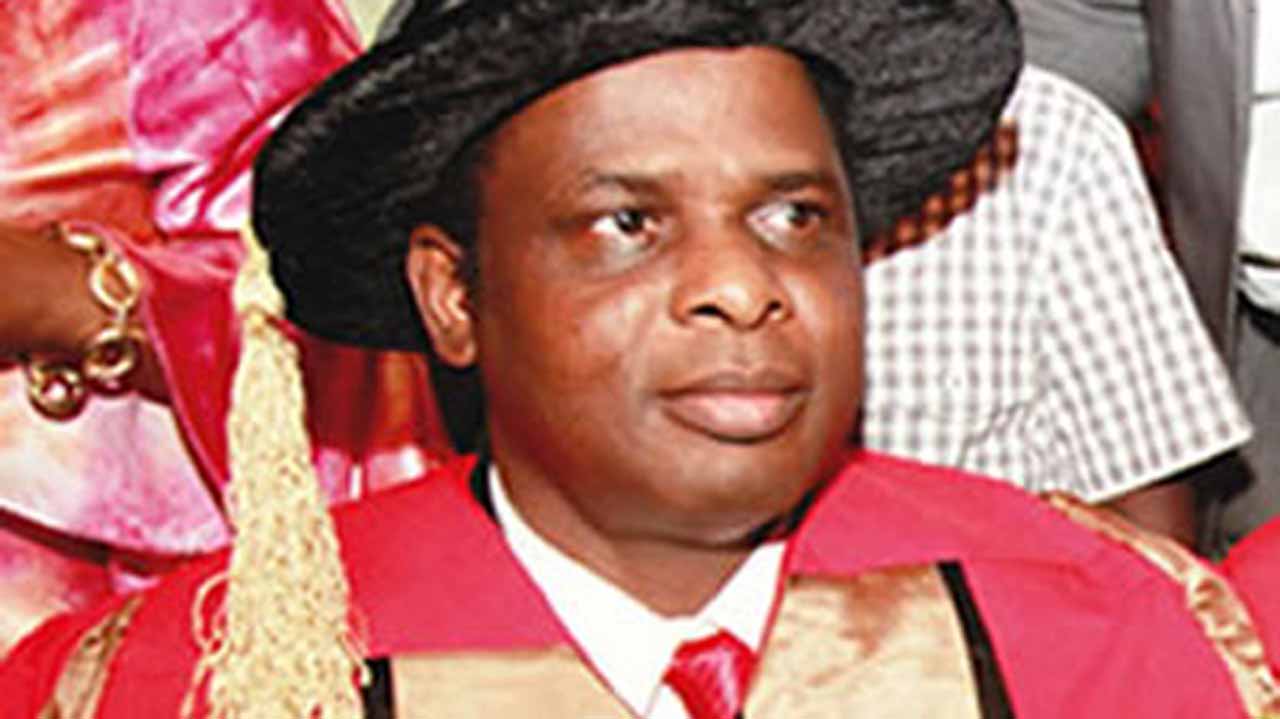
Olukoju, on his part, lauded the EEP initiative, noting that if the cost and other details are well defined, funds are timely disbursed, and high-quality equipment and facilities are installed, the intervention should make a noticeable difference in campus life.
“The snag is that the number of consumers always outstrips the installed capacity of facilities because our statistics are often unreliable, and we hardly ever plan for the long term or make allowance for contingencies, such as a rapid increase in the population.”
The planned EEP, Prof Usman Aliyu, of Bayero University, Kano (BUK), said, is a laudable initiative that is essential for the future of sustainable education.
He, however, noted that for it to be truly sustainable and beneficial in the long term, local involvement is crucial.
“So, we strongly advocate the active participation of relevant faculties, departments, and students in the design, implementation, and maintenance of such projects. This will not only enhance capacity-building but also prevent the all-too-common scenario where imported solutions fail due to lack of local ownership and continuity,” Aliyu stated.





